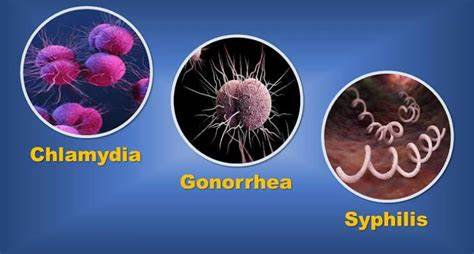A recent report from the Centers for Disease Control and Prevention (CDC) has shed light on a concerning surge in syphilis cases across the United States. The report reveals an alarming 80% increase in syphilis cases between 2018 and 2022, totaling over 207,000 cases. This worrisome trend is not confined to specific age groups or regions; it even affects newborns, with a shocking 937% rise in congenital syphilis cases reported over the past decade.

In a stark public health announcement, the CDC emphasized the severity of the situation and called for immediate attention. According to the report, more than 2.5 million cases of chlamydia, gonorrhea, and syphilis combined were reported in the United States, with particular concern surrounding the syphilis and congenital syphilis epidemics.
While the number of reported gonorrhea cases saw a decline for the first time in at least a decade, reported chlamydia cases remained steady. This shift in STI cases comes at a time when health officials are cautioning that the situation might worsen in 2023 due to funding cuts and shortages in critical treatments.
In response to these findings, CDC officials stressed the need for swift innovation and collaboration among all STI prevention partners. They acknowledged the challenges posed by the COVID-19 pandemic and the recent outbreak of mpox, highlighting the importance of mobilizing a comprehensive national approach to address the surge in STI cases.
As the CDC continues to monitor the situation closely and awaits data for 2023, public health officials urge a redoubling of prevention efforts. They emphasize the importance of bolstering STI services and resources to effectively combat the growing epidemic and mitigate its impact on public health.
What is Syphilis ?
Syphilis is a bacterial infection that primarily spreads through sexual contact. Initial symptoms manifest as painless sores on the genitals, rectum, or mouth. Transmission occurs through direct contact with these sores, and it can also be passed from mother to baby during pregnancy, childbirth, or breastfeeding.
Following infection, syphilis bacteria can remain dormant in the body for years without symptoms. However, the infection can later become active. Without treatment, syphilis poses serious risks, potentially damaging vital organs such as the heart and brain, leading to life-threatening complications.
Early syphilis can be cured, sometimes with a single shot of medicine called penicillin. That's why it's key to get a health care checkup as soon as you notice any symptoms of syphilis. All pregnant people should get tested for syphilis at their first prenatal checkup too.









